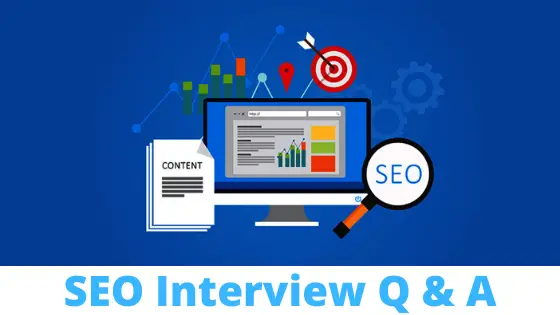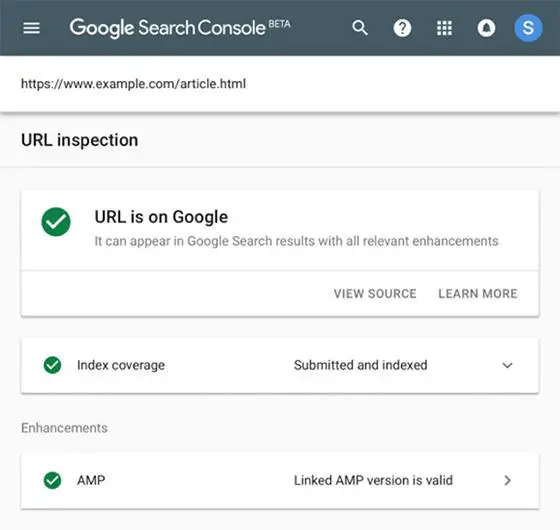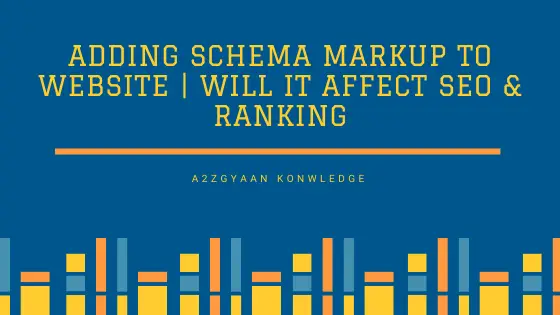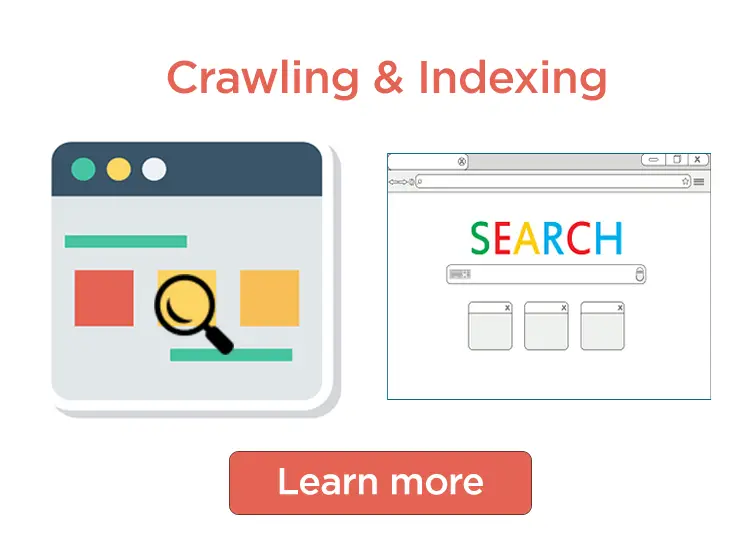25 Practical SEO Interview Questions and Answers in 2024
In this article, we present to you the most asked SEO interview questions and answers by recruiters. If you are looking to build your career in the SEO domain, briefly read the below SEO questions and answers for each entry, mid-senior, and upper-level categories.
SEO is the most crucial part of an online ecosystem and a very tough job to carry out. With being an SEO expert, executive, or manager, you need to be patient and must know all the hacks (in and outs) of the internet web.
SEO is not an easy task that seems to be easily manageable, instead of a job that anyone cannot resist long-drawn. If you are in the field of SEO, you are preparing to fight against hundreds of thousands of other platforms and SEO strategists to live on top of search engine rankings.
We have covered everything from basic to advance fundamentals so you can prepare well for cracking a job interview. Besides, apart from merely SEO interview questions and answers, you can also find it as a great source of learning.
Here’s a catch!
In the field of SEO, you always need to be updated with all search engine factors internally and externally. We will keep on updating this post as per the industry updates and will keep boosting your knowledge.
So, let’s get started!
SEO Interview Questions and Answers

Note, it doesn’t mean that questions and answers listed here the same will only be asked frequently. Depending upon the scenario and the job profile related questions can also be asked differently. It depends on your knowledge in SEO that how far you can go with understanding correlated practical cases.
Q1. What is the appropriate Keyword Density?
3-4%
Q2. From the SEO perspective, how many characters should be in a meta description?
50-160 characters
Q3. What is Anchor Text?
It is the visible text that is hyperlinked to another page.
Q4. Which on-page element carries the most weight for SEO?
The title tag
Q5. What do the acronyms PA, DA, and PR stand for?
Page Authority (PA), Domain Authority(DA), Page Rank (PR)
Q6. What are the number of characters recommended for Title Tag?
70 characters
Q7. What is the difference between Panda and Penguin Update?
Panda update released first in 2011; this update is aimed to lower the rank of “low-quality sites” or “thin sites,” in particular, “content farms,” and return higher-quality sites near the top of the search results.
Penguin update first released in 2012, this update was launched to catch sites deemed to be spamming its search results, in particular, those doing so by buying links or obtaining them through link networks designed primarily to boost Google rankings.
Q8. What is a backlink?
Any incoming links to a website or web page is known as a backlink. Search engines like Google use backlink as a ranking signal because when one site links to another, it means they believe the content is noteworthy.
Q9. What is the difference between a do-follow and no-follow link, and how are they used?
No-follow links exist because we don’t want every single web page or link to be something a search engine crawls and ranks. Therefore, no-follow link attributes tell search engine bots not to follow a specific link. The link is still clickable for a user, but not accompanied by a bot. On the other hand, all other links could be considered do-follow links, even though they don’t have to have unique attributes to tell the search engine bots to follow them—the bots will by default.
Q10. Explain the meta description in SEO.
The meta description is an HTML tag that helps Google ( or search engines in general) to understand your website. Most importantly, it’s the data that’s displayed in the SERPs (rankings).
It will look like this:
<meta name=”description” content=”meta description goes here.”/>
It is not a ranking factor in itself; however, how well the meta description presents the page on the SERP, the more people will click the result. It is called the CTR (Click-through rate), and a higher CTR is a ranking factor.
Q11. How will you determine if a link is a bad link?
Bad links include:
- Links from a low-authority or questionable domain
- Links pointing to irrelevant context and/or source
- Links embedded in the suspiciously keyword-matched anchor text
- Links pointing to a link exchanges
- Repetitive links
- Link from same anchor texts from different websites
- Links from sites not indexed by Google
- Spam links
- Paid links
Q12. What are the tools you use while performing SEO?
Basically, an SEO beginner uses free tools, including Google Webmasters, Google Trends, Keyword Planner, Yoast SEO, Alexa, Open Site Explorer, Google Analytics, Moz bar, SEMrush, Similarweb, Uber Suggest, and similar other tools depending upon user preferences.
The premium or paid tools used by experts include Ahrefs, Moz premium, SpyFu, Keyword Tool, Alexa premium, Buzzsumo, SERRPSTAT, and few others.
Q13. What are some of the Off-page SEO techniques?
Off-page SEO activities include directory submission, link building, social bookmarking, guest posting, article submission, forums posting, press release submission, and RSS submission.
Q14. What steps do you undertake while optimizing a website?
An SEO professional will always be methodical and detail-oriented. He/she will always follow a step-by-step process to analyze, interpret, and evaluate websites to look for areas where effective changes can be made. A good set of steps may include:
- Content quality check
- URL structuring
- Images alt attributes
- Improvizing webpage loading speed
- Mobile friendly and responsiveness
- Following Google guidelines for website
- Proper use of tags
Note: There are several other factors, too, but indicating a few major essential areas could be more than enough.
Q15. How do you do keyword research?
SEO professionals record keywords based on essential business topics, whether using a particular tool or even just in a spreadsheet. As an SEO specialist, you should also regularly research related terms to ensure that everything is covered for what potential visitors are searching for. Some popular keywords tools for this, including Google Keyword Tool, SEMrush, GrepWords, and Ubersuggest.
Q16. If an advertiser does a PPC campaign, will it affect the organic SEO ranking?
No, the rank on Paid Results will not affect the organic results. So we can work on SEO irrespective of spending amount on PPC.
Q17. What is BERT Update?
BERT is the abbreviation for Bidirectional Encoder Representations from Transformers. It is nothing but a deep learning algorithm related to natural language processing. With all the nuances of context, in understanding what the words in a sentence mean, this will be helpful to machines.
Q18. What is a Sitemap?
A sitemap refers to the map of a website. It is the detailed structure of a site that includes different sections of your site with internal links.
Q19. What is Schema Markup in SEO?
A Schema Markup is a code (or a form of microdata) that adds to the websites, which helps Search Engines to crawl and return more relevant and informative results. By adding Schema Markups to website pages, we help Search Engines to understand the meaning of data and how it contributes to determining the quality of search results.
Q20. What is link juice?
Link juice is a concept in the SEO field that relates to the influence or resources of external and internal outlets transmitted to a website. It is interpreted as a vote in favor of your website and is one of the critical factors in determining your search ranking and PageRank.
Q21. What strategies do you apply in link-building for a client?
There are several ways to build links according to the client’s needs, from natural editorial links to high-quality content to a company’s contractual service. A methodical candidate should be able to consider the specific needs of your company to determine the right strategy to achieve your goals.
Q22. What is your process for developing an SEO growth strategy?
For developing an SEO growth strategy, you must be detail-oriented and well versed in managing a campaign. A perfect example of developing an SEO growth strategy could look like this:
- Know your target audience
- Define your objectives
- Categorize keywords
- Track data and results.
Q23. According to your knowledge, which could be the most crucial factor in SEO?
The answer to this question will give your employer the idea of how professionally you think related to your work. In the field of SEO, there is no such single factor that could improvise your SEO strategy. An SEO specialist should always look for all the factors depending on the nature, type, and niche of the campaign.
Q24. In your career experience, there might be a time when an SEO strategy has gone wrong. What have you learned from it?
A large part of the job of an SEO expert is to try new things, measure results, and develop new assumptions. It is usual for a campaign to get something wrong, and strong candidates should be able to discuss how they have changed their strategies accordingly.
Q25. As an SEO expert, how can you overcome the implications caused by Google algorithm updates?
Each year Google makes a lot of updates in its algorithm and so it is essential for an SEO specialist to always stay on top of these updates. It’s important to stay updated in the field of SEO and keep trying new things; otherwise, generating results could be a real mess.
The Final Takeaway
So, these are the most practically asked SEO interview questions and answers by any recruiter or professional. Apart, it’s not that the employer or hiring manager will just ask these questions; instead, they could also ask you to it practically by assigning a task. You should always be prepared for any such situation.
Further, in my opinion, I think that if you’re an SEO expert and have leveraged your skills in real-world cases, no one can stop you or pull down your proven work skills. So, with good theory knowledge and preparation of these SEO interview questions and answers, you can easily make up to the mark.
Good luck and cheers!
Also, if you have any other questions and answers related to the field of SEO worth adding to this list, please feel free to publish in the comment box below.






